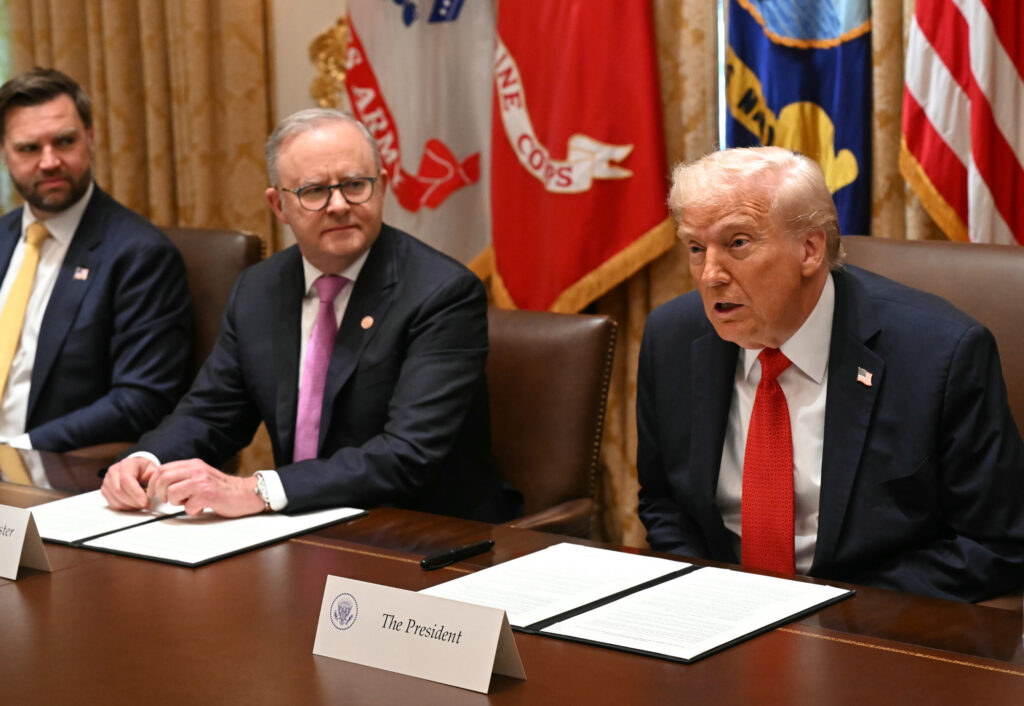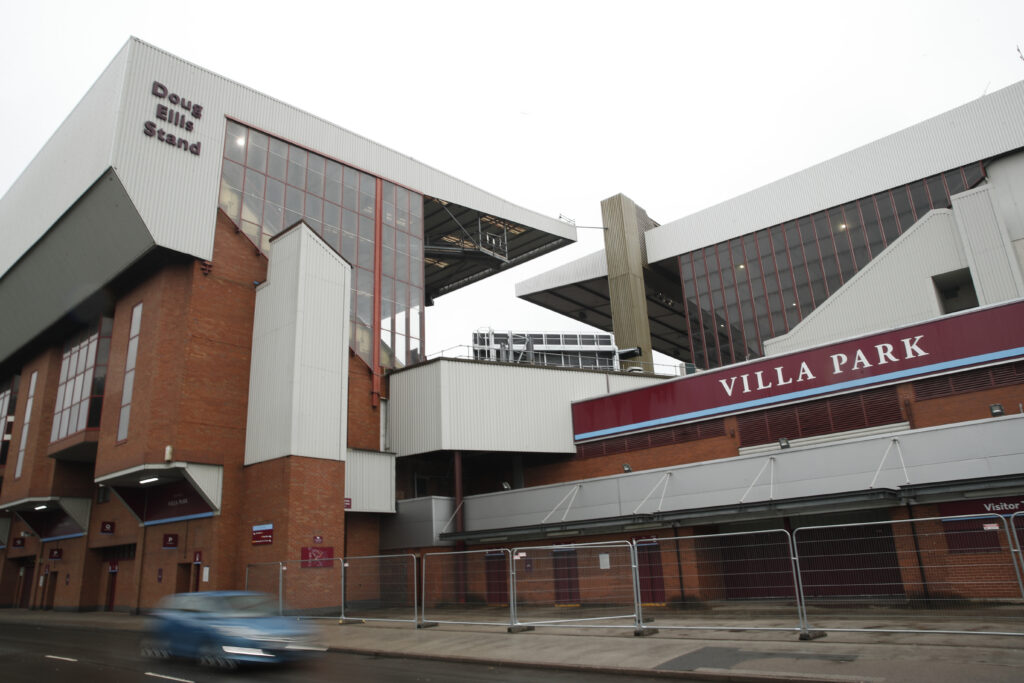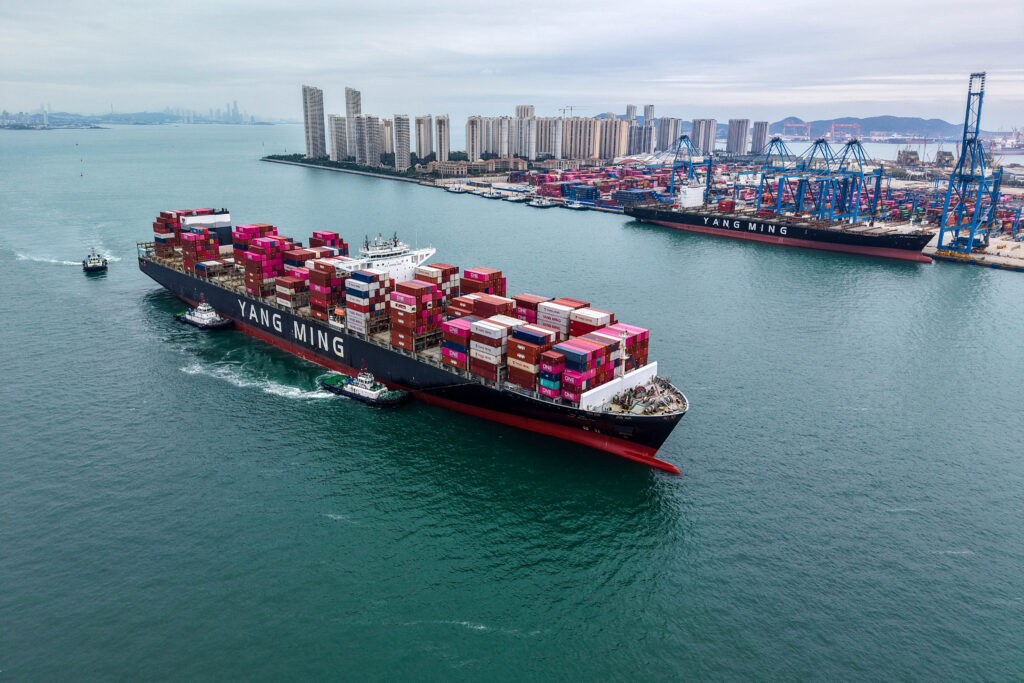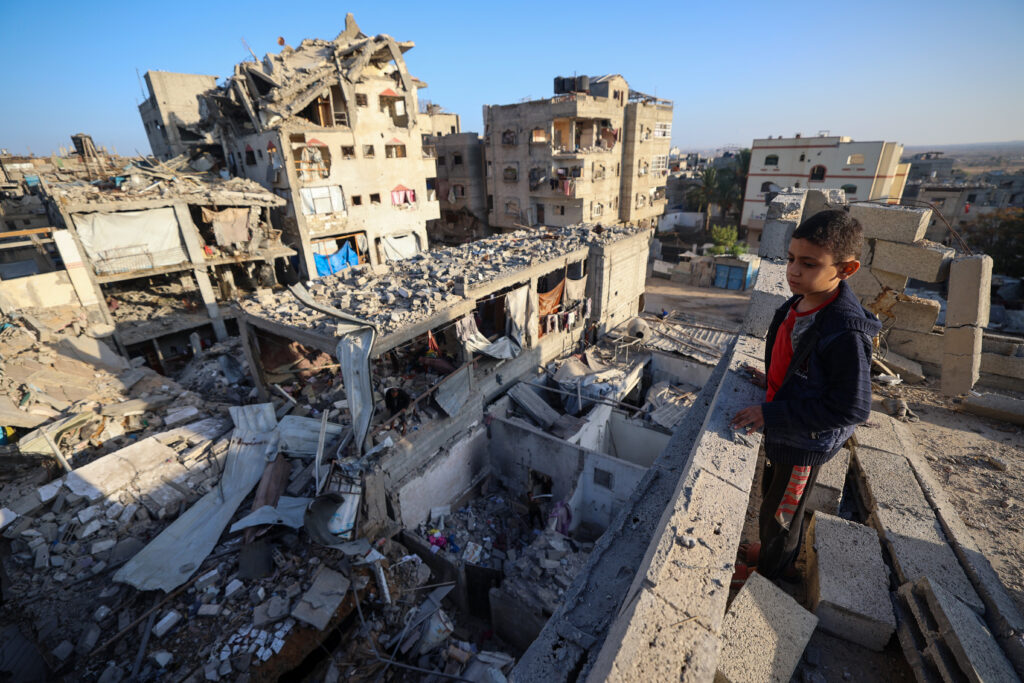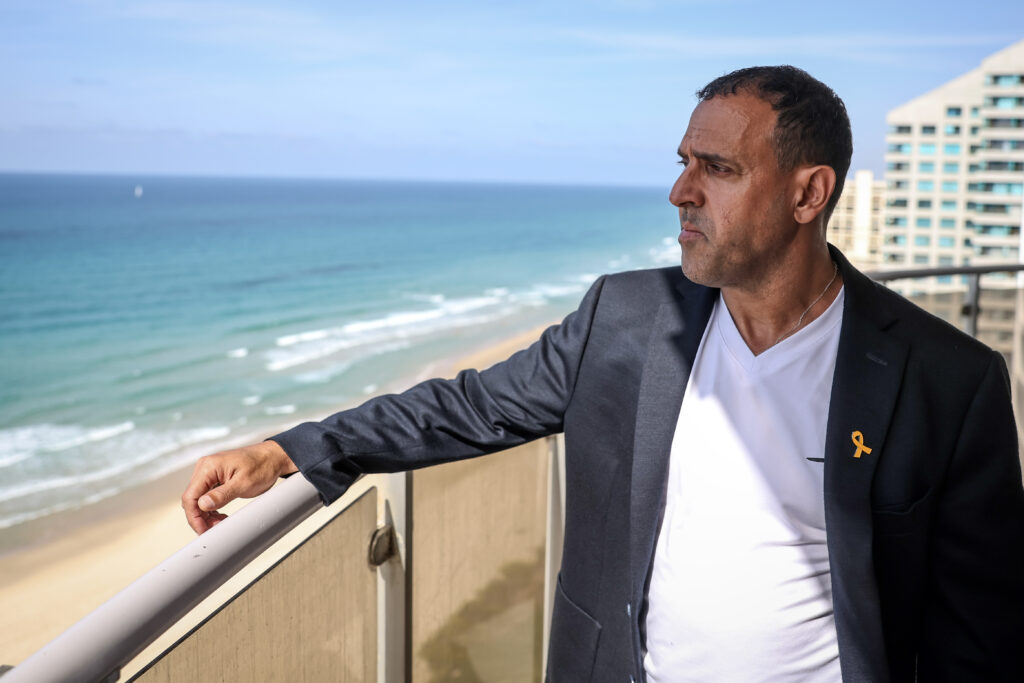AFP Asia Business
EU timber imports linked to deforestation on Indonesia’s Borneo: NGOs
Timber imports by companies operating in the European Union can be traced to logging on Indonesia’s Borneo island, a new report published Tuesday showed, with NGOs calling for the bloc to stop delaying a ban on deforestation-linked products.The EU last month said it will seek a new one-year postponement of sweeping anti-deforestation rules known as …
EU timber imports linked to deforestation on Indonesia’s Borneo: NGOs Read More »
Trump says Hamas will be ‘eradicated’ if group breaches Gaza deal
US President Donald Trump warned Hamas Monday it would be “eradicated” if it breaches the Gaza deal with Israel, but said he would give the Palestinian militant group a chance to honor the truce.Vice President JD Vance headed to Israel shortly after Trump’s comments, joining two top US envoys after weekend violence threatened to wreck the fragile ceasefire.”We made a deal with Hamas that they’re going to be very good, they’re going to behave, they’re going to be nice,” Trump told reporters at the White House as he hosted Australian Prime Minister Anthony Albanese.”And if they’re not, we’re going to go and we’re going to eradicate them, if we have to. They’ll be eradicated, and they know that.”Trump helped broker the Gaza deal nearly two weeks ago but it has repeatedly come under threat as Israel accuses Hamas of stalling on handing over dead hostages, and of launching attacks.Hamas’s top negotiator, Khalil al-Hayya, told Egypt’s Al-Qahera News that the group was still committed to the ceasefire agreement. “We are finding it extremely difficult to extract the bodies, but we are serious and working hard to extract them,” he said in comments broadcast Tuesday morning.”The Gaza agreement will hold, because we want it to and our will to abide by it is strong.”Trump has also warned the militant group to stop public executions of rivals and alleged collaborators as it seeks to reestablish its grip on the devastated territory.Trump, however, insisted that American forces would not be involved in confronting against Hamas, saying dozens of countries that have agreed to join an international stabilization forces for Gaza would “love to go in.””In addition, you have Israel would go in in two minutes, if I asked them to go in,” Trump said.”But right now, we haven’t said that. We’re going to give it a little chance, and hopefully there will be a little less violence. But right now, you know, they’re violent people,” he added.”They got very rambunctious, and they did things that they shouldn’t be doing, and if they keep doing it, then we’re going to go in and straighten it out, and it’ll happen very quickly and pretty violently.”Trump said that Hamas was now far weaker, especially as regional backer Iran was now unlikely to step in on its behalf following US and Israeli strikes this year.”They don’t have the backing of really anybody anymore. They have to be good, and if they’re not good, they’ll be eradicated,” Trump stressed.Trump’s special envoy Steve Witkoff and adviser son-in-law Jared Kushner met Netanyahu on Monday to discuss “developments and updates in the region”, a spokesman for the prime minister’s office said.Vance and his wife Usha later left Washington for Israel without commenting to reporters. They were also due to meet with Netanyahu, the prime minister’s office said.
Maccabi Tel Aviv to decline tickets for European tie at Aston Villa
Maccabi Tel Aviv will decline any tickets offered to their fans for a Europa League away match at Aston Villa, the Israeli club announced Monday.The local Safety Advisory Group (SAG) covering Villa Park in Birmingham, in central England, last week blocked visiting fans from attending the November 6 match following a police risk assessment.That decision drew widespread political criticism, including from UK Prime Minister Keir Starmer, with widespread calls for the ruling to be reversed. The British government said Friday it was working to allow Israeli fans to attend. But a statement on the Maccabi Tel Aviv website said: “The wellbeing and safety of our fans is paramount and, from hard lessons learned, we have taken the decision to decline any allocation offered on behalf of away fans, and our decision should be understood in that context.”We hope that circumstances will change and look forward to being able to play in Birmingham in a sporting environment in the near future.”The announcement came only a day after Israeli police called off the Israeli Premier League match between Maccabi and city rivals Hapoel because of “riots” between rival fans.Maccabi insisted their supporters were not involved in the unrest, while their statement questioned the motivation of those leading calls for a ban on away fans.”We acknowledge the efforts of the UK government and police to ensure both sets of fans can attend the match safely, and are grateful for the messages of support from across the footballing community and society at large,” said the club.”Our first-team squad consists of Muslims, Christian and Jewish players and our fan base also crosses the ethnic and religious divide. We have also been working tirelessly to stamp out racism within the more extreme elements of our fan base.”- Game ‘weaponised’ to stoke violence -The statement added: “It is clear that various entrenched groups seek to malign the Maccabi Tel Aviv fan base, most of whom have no truck with racism or hooliganism of any kind, and are exploiting isolated incidents for their own social and political ends.”As a result of the hate-filled falsehoods, a toxic atmosphere has been created, which makes the safety of our fans wishing to attend very much in doubt.”A British government spokesperson, responding to Maccabi’s announcement, said: “We are deeply saddened Maccabi Tel Aviv have turned down their away fan allocation but we respect their right to do so.”It is completely unacceptable that this game has been weaponised to stoke violence and fear by those who seek to divide us.”We will never tolerate antisemitism or extremism on our streets.”Earlier, UK Culture, Media and Sport Secretary Lisa Nandy told the House of Commons the final decision must ultimately be made by the police.However, she also said the country “should be appalled” that the initial assessment was “based in no small part on the risk posed to those fans that are attending who support Maccabi because they are Israeli, and because they are Jewish”.West Midlands Police last week classified the fixture as “high risk”. They said the decision was “based on current intelligence and previous incidents, including violent clashes and hate crime offences that occurred during the 2024 UEFA Europa League match between Ajax and Maccabi Tel Aviv in Amsterdam”.Birmingham has been the scene of pro-Palestinian rallies since the Gaza war between Israel and Hamas began.A number of British left-wing independent and Green politicians backed the ban, with some calling for the wider exclusion of Israeli teams from international competitions due to the government’s actions in Gaza.Earlier this month, two Jewish men died in an attack on a synagogue in Manchester, England, that police linked to Islamist extremism.
Stock markets climb as China-US trade fears ease
Stock markets rose Monday after conciliatory comments from US President Donald Trump eased worries about China-US trade tensions.Major US indices jumped more than one percent, boosted also by gains in large tech names led by Apple.Tokyo stocks surged more than three percent to a record after Japan’s ruling party said it was set to sign …
Stock markets climb as China-US trade fears ease Read More »
Vance due in Israel as US seeks to shore up Gaza ceasefire
The Trump administration has redoubled its efforts to bolster a fragile ceasefire in Gaza after a flare-up of violence, with Vice President JD Vance due in Israel on Tuesday hot on the heels of two high-level envoys.Despite incidents over the weekend, both warring parties have said they are committed to the US-backed truce, and Donald Trump himself said Monday that he would give Hamas a chance to “behave” or else be “eradicated”.The ultimatum came as militants returned the body of another dead hostage under the ceasefire deal, with the Israeli military confirming the remains were back in Israel where they would be positively identified. Prior to the latest handover, Hamas had given back 12 hostages’ bodies out of the 28 it had pledged to return, but it says it needs time and technical assistance to recover them all.The truce, which Trump helped to broker, came under threat over the weekend when two Israeli soldiers were killed in Gaza’s south.In response, Israel carried out dozens of strikes targeting Hamas across the territory on Sunday — using 153 tonnes of bombs, according to Netanyahu — and accused the militant group of “a blatant violation” of the ceasefire, an accusation it denied.”We made a deal with Hamas that they’re going to be very good, they’re going to behave, they’re going to be nice,” Trump told reporters at the White House, adding that “if they’re not, we’re going to go and we’re going to eradicate them”.Trump clarified that American forces would not be involved, but “Israel would go in in two minutes, if I asked them”.”But right now, we haven’t said that. We’re going to give it a little chance,” he added.Trump had previously said that as far as he was concerned, the ceasefire was still in effect.His special envoy Steve Witkoff and adviser son-in-law Jared Kushner met with Netanyahu on Monday to discuss recent developments, Shosh Bedrosian, spokeswoman for the prime minister’s office, told journalists.And Netanyahu later told parliament that Vice President Vance would arrive in Israel on Tuesday for discussions on “two things… the security challenges we face and the diplomatic opportunities before us”.- UN calls for calm -The ceasefire, which began on October 10, halted more than two years of war between Israel and Hamas.The deal established the outline for hostage and prisoner exchanges, and proposed an ambitious roadmap for Gaza’s future. But its implementation has quickly faced challenges. Following the flare-up over the weekend, the United Nations said it was “concerned by all acts of violence in Gaza”.”We urge all parties to honour all of their commitments to ensure the protection of civilians and avoid any actions that could lead to a renewal of hostilities and undermine humanitarian operations,” said the secretary-general’s spokesman, Stephane Dujarric.Gaza’s civil defence agency said Israeli strikes killed at least 45 people across the territory on Sunday.The agency, which operates under Hamas authority, said four people were also killed by Israeli gunfire on Monday in Gaza City, with the army saying it fired at militants who crossed a ceasefire line.Under Trump’s 20-point plan, Israeli forces have withdrawn beyond the so-called “Yellow Line” — which leaves them in control of around half of Gaza, including the territory’s borders, but not its main cities.Israeli troops have fired on Gazans they say were approaching their new positions several times since the ceasefire was declared. Media restrictions in Gaza and difficulties in accessing many areas mean AFP is unable to independently verify details provided by the civil defence agency or the Israeli military.- ‘Renewed enforcement’ -The army said that after carrying out Sunday’s air strikes in response to the attack on its soldiers, it had “renewed enforcement of the ceasefire” but would “respond firmly to any violation”.Hamas denied knowledge of any attack, with one official accusing Israel of fabricating “pretexts” to resume the war.A Hamas delegation was in Cairo on Monday for talks with Qatari and Egyptian mediators on the continuation of the truce and an upcoming intra-Palestinian dialogue hosted by Egypt, according to a source close to the negotiations.The war, triggered by Hamas’s October 7, 2023 attack on Israel, has killed at least 68,216 people in Gaza, according to the health ministry in the Hamas-run territory, figures the United Nations considers credible.The data does not distinguish between civilians and combatants but indicates that more than half of the dead are women and children.Hamas’s 2023 attack resulted in the deaths of 1,221 people, mostly civilians, according to an AFP tally based on official Israeli figures.burs-acc/smw/gv
Former Israeli hostage ‘looking ahead’, determined to move on
After more than a year trapped in a dark tunnel under Gaza, Eli Sharabi is determined to move forward with his life, even as he knows that pain and grief will be constant companions.”It’s impossible to forget even a single moment of my captivity,” the 53-year-old Israeli former hostage told AFP in an interview on Monday.”But it does not define who I am.”Sharabi was abducted from his home in Kibbutz Beeri during the unprecedented Hamas attack on southern Israel on October 7, 2023. That day, he lost almost everything.Hamas gunmen killed his wife and two daughters and also seized his brother, Yossi Sharabi, dragging him to Gaza as well.While in captivity, Eli Sharabi learned of his brother’s death, but he remained unaware that the attackers had killed his wife and daughters until he was freed during a ceasefire earlier this year that ultimately collapsed.Yossi Sharabi’s remains were returned to Israel just days ago under a new truce brokered by US President Donald Trump.”The extended Sharabi family has been waiting for this for two years,” Sharabi said calmly.”We needed closure. It’s important to us. But it’s clearly a very sad ending.”Sharabi, dressed in jeans, a white T-shirt and a black blazer, wore a yellow ribbon pinned to his lapel, a symbol of solidarity with those still held in Gaza.Under the current ceasefire, all 20 surviving hostages have been released, and the remains of 12 hostages have been returned. The bodies of over a dozen more remain in Gaza.The deaths of his wife and daughters left him shattered but also strengthened him, he said.”The sadness and the loss of my wife, my daughters and my brother will stay with me until my last day,” Sharabi said.”But I’m a person who is always optimistic, always looking for solutions, always looking ahead.”- ‘I love life’ -While in captivity, Sharabi lost 30 kilograms and endured extreme conditions: hunger, darkness, deprivation and a lack of basic hygiene.Yet he remembers most of his conversations with fellow hostages and their small efforts to keep each other’s spirits alive.Among them was Alon Ohel, with whom he shared 14 months in a tunnel beneath Gaza.”We helped each other stay human,” Sharabi said, adding that he refused to let anger dominate him.”I love life,” he said.”The loss, the sadness and the anger will run alongside my life… but they won’t control it.”Soon after his release, Sharabi wrote a memoir, “Hostage”, in which he recounts his last moments before being dragged from his home.Turning to his daughters, Noya, 16, and Yahel, 13, he said: “I will come back. I promise.”That vow sustained him through captivity.Six weeks after his release, Sharabi addressed the United Nations Security Council, delivering an impassioned speech.”I stand before you to testify — and to ask: Where was the United Nations? Where was the Red Cross? Where was the world?” he said at the time.He sees his book as a historical record. “This book had to be written,” he said. “It’s a historical document for future generations.””Hostage” has become an instant bestseller in Israel, selling over 100,000 copies.Editions are now available in Hebrew, English and French, and Sharabi hopes for more translations.He, however, has no plans to return to Kibbutz Beeri, the site of one of the deadliest massacres on October 7, where Israeli forces say hundreds of Hamas gunmen killed more than 100 civilians and took 32 hostages.When asked what he felt about his captors, he said: “It will take two generations to bring some sanity in them and they need a sane leadership.””Otherwise it’s the same.”Sharabi now dreams of a quieter life in the future.”I want an anonymous, ordinary life, to start the morning with a walk by the sea… to have a normal life with friends and family around me,” he said, a faint smile crossing his face.


